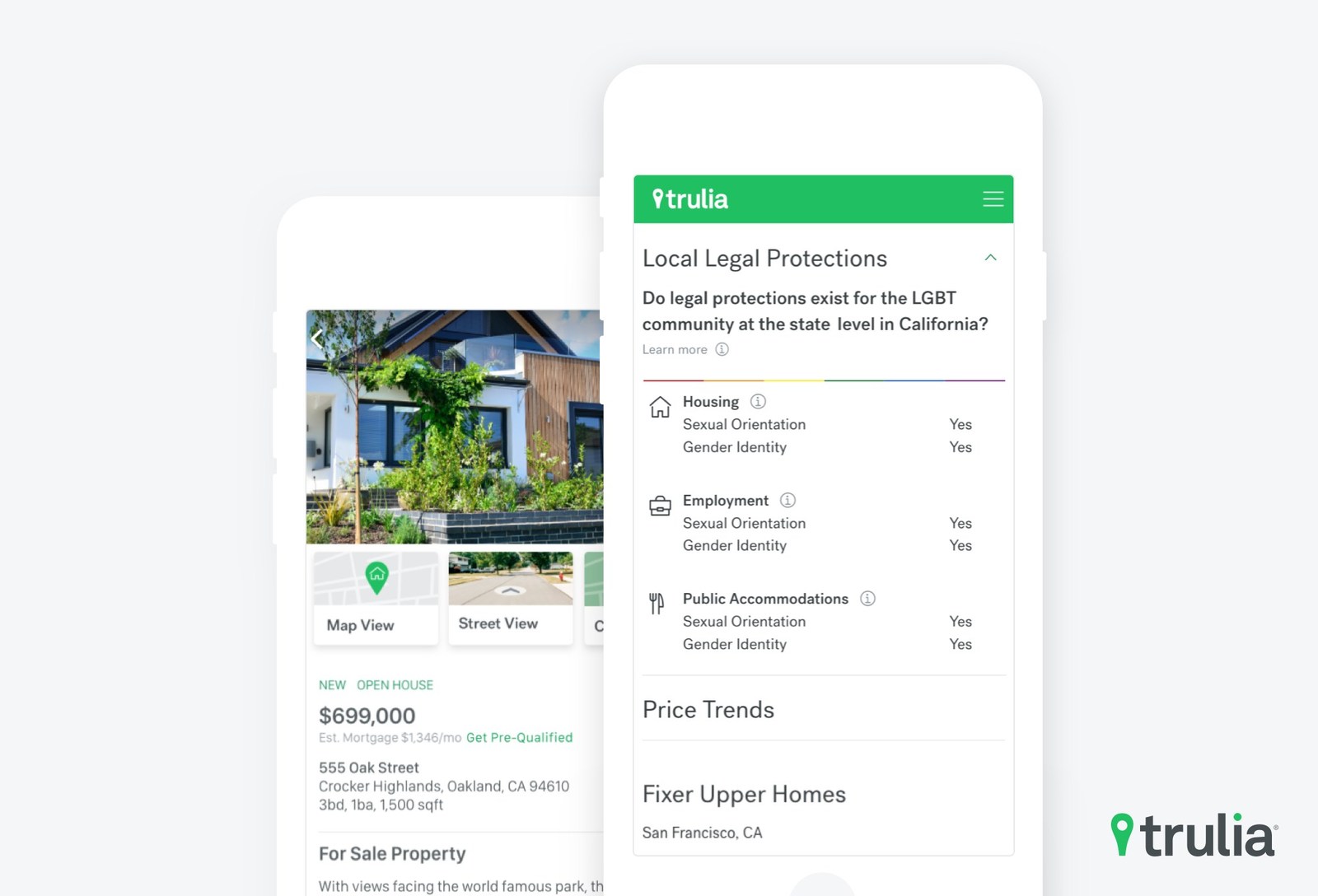Trulia has debuted Local Legal Protections, which displays the legal protections for lesbian, gay, bisexual or transgender individuals in a given home’s jurisdiction on its property pages. The feature highlights what laws are in place to protect fair and equal treatment in housing, employment and public accommodations based on sexual orientation and gender identity.

Available for every for-sale and off-market listing on Trulia, the feature is powered by data from the Movement Advancement Project, an independent nonprofit organization that provides research on equality for LGBT people. The feature provides details on which protections exist, what they mean, and if those protections are provided at the state, county or city level.
“At Trulia, our mission is to help all prospective homebuyers and renters find the best home and neighborhood for them, and for the LGBT community, non-discrimination laws can be different in each state, county, and city,” says Tim Correia, senior vice president and general manager of Trulia. “The Local Legal Protections feature helps the LGBT community understand the confusing patchwork of protection laws that exist so they truly can find a place they love to live.”
“Choosing a home is one of the most significant decisions in people’s lives,” says Ineke Mushovic, executive director of the Movement Advancement Project. “For many, a primary consideration isn’t just the house, but whether they will be moving to a neighborhood where they are protected and feel supported. This groundbreaking feature will help LGBT people look not only for the right home, but also the right community.”
Currently, national housing and employment non-discrimination laws only protect some classes, such as sex, race, age, color, religion, and national origin, among others. Explicit protections for individuals who identify as LGBT can vary significantly by city, county, and state jurisdiction. Across the U.S., an estimated 55.2 percent of all housing units are covered by local protections for sexual orientation and/or gender identity, and 22 states, plus Washington, D.C., have full protections for housing, employment, and public accommodations.*
*According to U.S. Census 2016 5-Year American Community Survey estimates; jurisdictions identified by the Movement Advancement Project
For more information, please visit www.trulia.com.
For the latest real estate news and trends, bookmark RISMedia.com.










